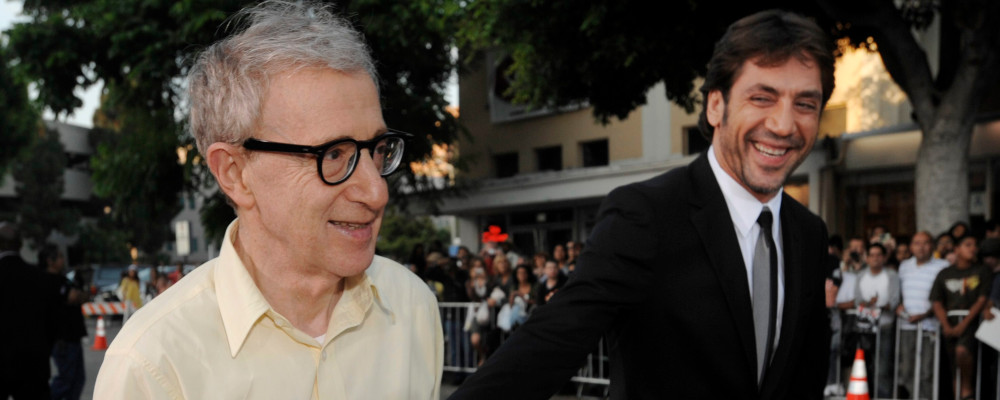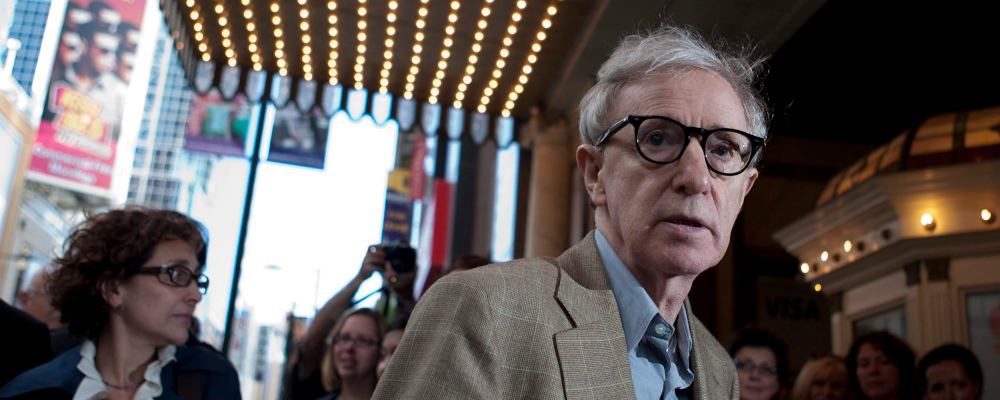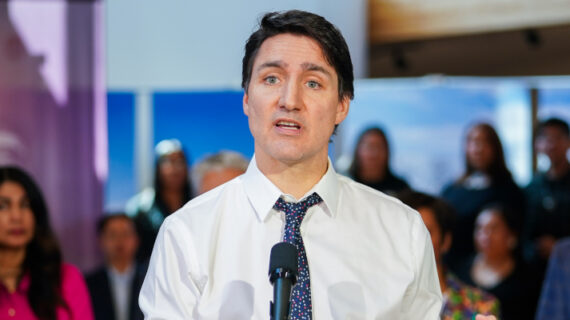Woody Allen’s latest short story didn’t appear in his usual mainstream magazines. It was published in a small intellectual journal, The New Criterion, whose conservative editor, Roger Kimball, is a strong Donald Trump supporter. Where Woody Allen once published mainly for the liberal New Yorker, he’s now relegated to journals he once mocked. In his film Annie Hall, he quipped that the journals Dissent and Commentary had merged and formed Dysentery. If you follow these journals, you’ll get the joke.
Allen’s isolation started when he took up with Mia Farrow’s adopted daughter, Soon-Yi, in 1992 when she was 21 and he was 56. You can find all the sordid details online. Soon-Yi Previn—yes, she was the adopted daughter of Farrow and the composer Andre Previn by a previous marriage—and Allen married a few years later, have been together for 30 years, and raised two well-adjusted and thriving adopted daughters. After the humiliation of Allen’s betrayal, Farrow was determined to continue the fight just as the #MeToo movement was gaining speed. Allen was consequently lumped into the same category as Harvey Weinstein.
To make matters worse, Farrow accused Allen of molesting their adopted daughter, Dylan Farrow, when she was seven years old. After years of investigation, no evidence of sexual molestation was found, and no charges were ever brought against Allen. But that didn’t stop Mia Farrow from participating in a four-part HBO series, Allen v. Farrow, making her case to the public. The mini-series seemed to put Allen in a better light than Farrow, though the intention was otherwise. Soon-Yi, who never regretted her decision to marry and raise a family with Allen, is left out of the picture. Nonetheless, the backlash against Allen continued.

Allen’s autobiography, Apropos of Nothing in 2020, was initially supposed to be published by Hachette but was dumped when staff objected because they supposedly believed the molestation charges. The presumption of innocence never bothered the Hachette staff. Woody Allen and Mia Farrow’s natural son, Ronan Farrow, who was at the forefront of exposing the Weinstein scandal, was now trying to de-platform his father. To complicate matters, Hachette was also Ronan Farrow’s publisher and he also writes for The New Yorker, which partially explains why Allen’s work hasn’t appeared on their pages since 2007.
It all gets stranger when we find that Mia Farrow continues to be a friend and supporter of Roman Polanski, who was found guilty of raping an underage actress and who fled the U.S. to avoid jail time.
The clash now seems to be between actors who regret working on a Woody Allen movie and those who don’t. Those who regret their decisions tend to be younger, including Timothée Chalamet, Greta Gerwig, Griffith Newman, and Canadian Elliot Page, who carry their generation’s sense of sanctimony tinged with mock outrage. A few older actors with regrets were Drew Barrymore, Mia Sorvino, and even Michael Caine. The latter is a surprise since he worked closely with Sean Connery in A Man Who Would be King—not someone who had politically correct attitudes towards women.
One can be sure that the list of actors who turned down the chance to be in a Woody Allen movie is much shorter than the ones who accepted. Most of them knew of the accusations against Allen before accepting their roles. Drew Barrymore claims she was somehow “gaslit” into working with Allen. At the same time, Sorvino, who won an Academy Award for Best Actress in Mighty Aphrodite in 1995, discovered her conscience after pocketing the benefits. Those who refused to be cowed by the media and continued to support Allen include Scarlett Johansson, Diane Keaton, Kate Winslet, and Javier Bardem, who starred in Vicky Christina Barcelona and has called Allen a genius and said he wouldn’t hesitate to work with him again.

A similar story of hypocrisy was exhibited by the actors who turned on J.K. Rowling for her stand on gender identity. Daniel Radcliffe and other actors made rich from her intellectual property now live comfortably with a “good conscience on the proceeds.” Rowling may have the last laugh, though, now that Warner Brothers wants to turn Harry Potter into a TV series; she still controls the IP, the company’s most valuable asset, and the studio is now begging for her to return after initially failing to come to her defence.
Through it all, Allen kept making films even though they were no longer distributed in North America. Amazon pulled out of a contract to distribute four of his movies in 2019. Allen now shoots his films in Europe, including his 50th film, Coup de Chance, which premiered at the Venice Film Festival last year to good reviews. Given the attention and money Allen’s films are making in Europe and Asia, it’s being picked up for U.S. release in April. North American audiences won’t have to send around samizdat copies of his latest movies.
If there’s a lesson in this saga, it’s that life is messy. Allen endured because he made his work and family his priority. Farrow concentrated on payback and revenge. There’s a Greek family tragedy somewhere to be learned. Maybe we’ll see it in the next Woody Allen movie.




